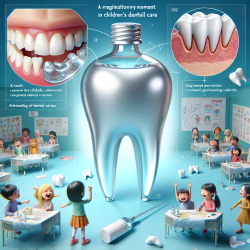Understanding the Role of Early Childhood Irritability in Mental Health
As practitioners in the field of speech language pathology, we are constantly seeking ways to improve outcomes for children. A recent study published in the International Journal of Methods in Psychiatric Research sheds light on the importance of assessing early childhood irritability as a predictor of mental health risks. This research provides valuable insights that can enhance our practice and guide us in making data-driven decisions.
Key Findings from the Research
The study, titled Prevalence, stability, and predictive utility of the Multidimensional Assessment of Preschoolers Scales clinically optimized irritability score: Pragmatic early assessment of mental disorder risk, highlights several crucial findings:
- One in five preschool-age children exhibited clinically significant irritability.
- Irritability was found to be highly stable from early childhood through preadolescence.
- Children with significant early irritability had higher odds of developing persistent internalizing and externalizing disorders.
- The pragmatic assessment effectively screened out low-risk children and identified two-thirds of children with early-onset, persistent psychopathology.
Implications for Practitioners
The prevalence of early childhood irritability is comparable to the pediatric obesity epidemic, suggesting a need for universal screening and intervention. The stability of irritability challenges the common belief that children will "grow out of it," underscoring the necessity for early assessment and intervention.
As practitioners, we can leverage these findings to implement more effective screening processes. By utilizing the Multidimensional Assessment of Preschoolers Scales (MAPS), we can identify children at risk and provide timely interventions that may alter their developmental trajectory.
Encouraging Further Research and Practice Improvement
While this study provides a strong foundation, it also opens the door for further research. Practitioners are encouraged to explore additional dimensions of early childhood behavior that may contribute to mental health risks. Collaboration with researchers can enhance our understanding and lead to the development of more comprehensive assessment tools.
Moreover, integrating these findings into practice requires a commitment to continuous learning and adaptation. By staying informed about the latest research and methodologies, practitioners can ensure they are providing the best possible care for their young clients.
Conclusion
Early childhood irritability is a significant predictor of mental health risks, and its assessment should be a priority in our practice. By adopting data-driven approaches and embracing the insights from recent research, we can make a meaningful impact on the lives of children and their families.
To read the original research paper, please follow this link: Prevalence, stability, and predictive utility of the Multidimensional Assessment of Preschoolers Scales clinically optimized irritability score: Pragmatic early assessment of mental disorder risk.










